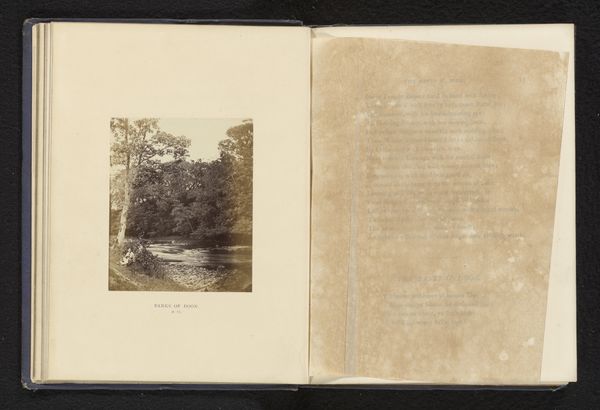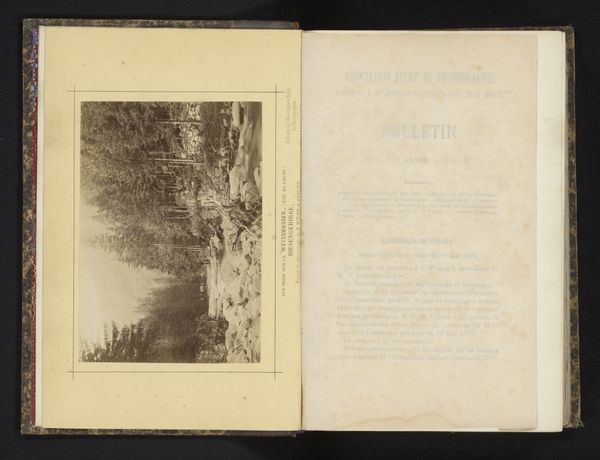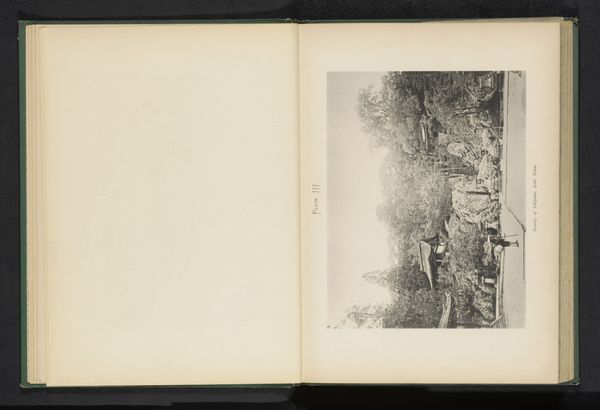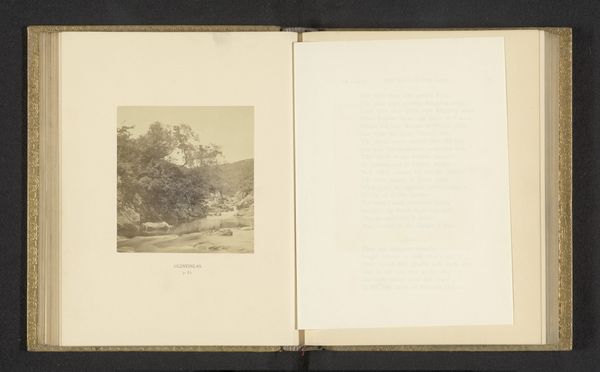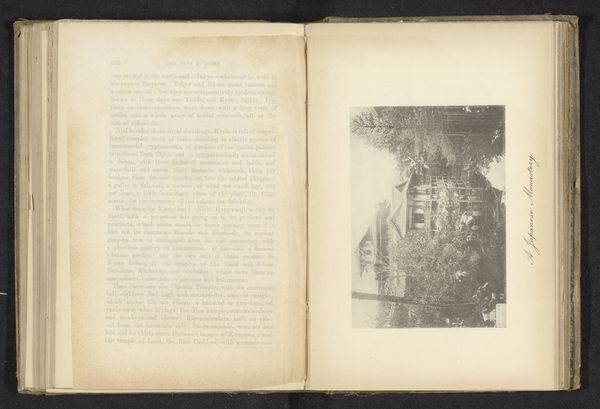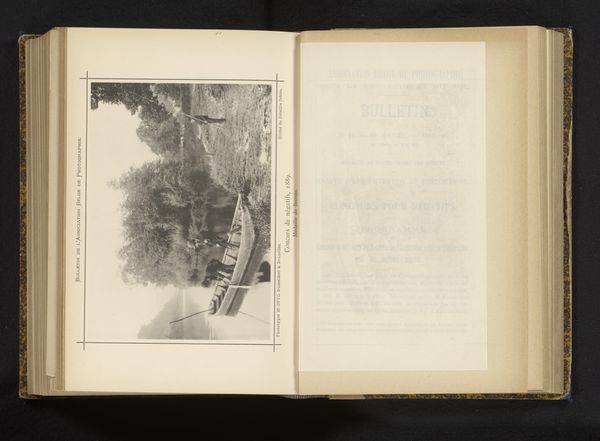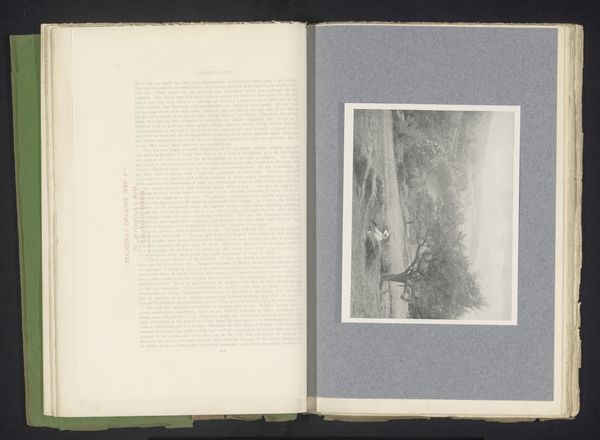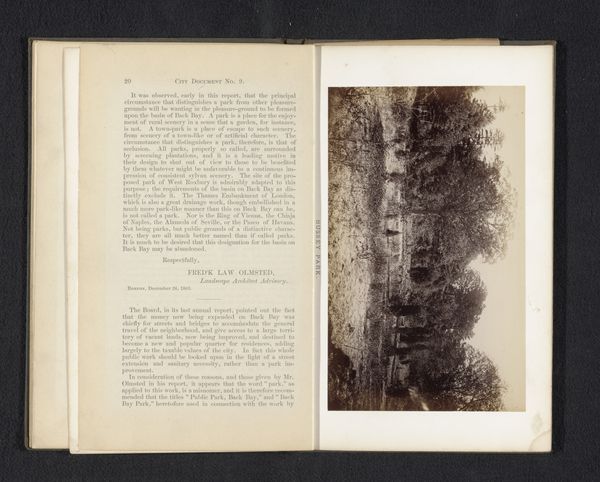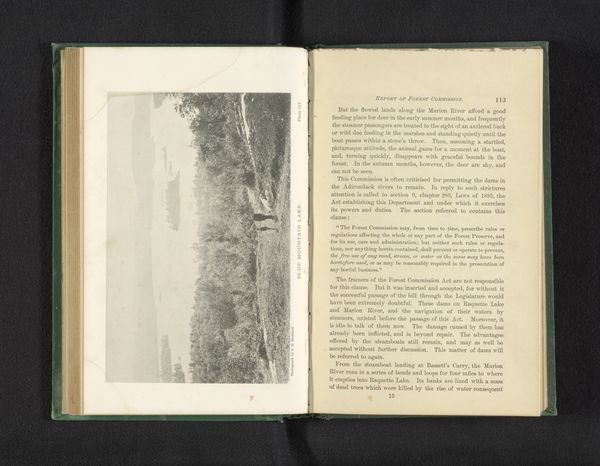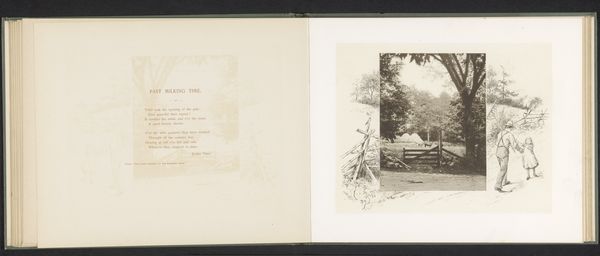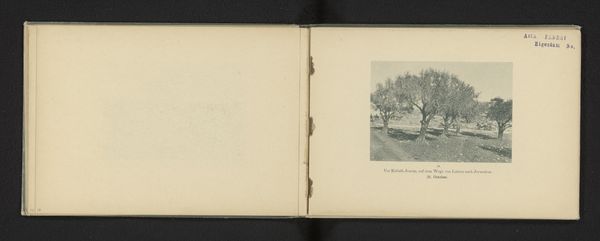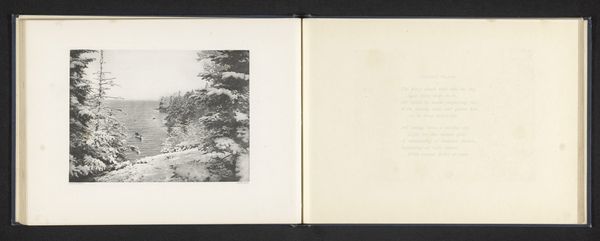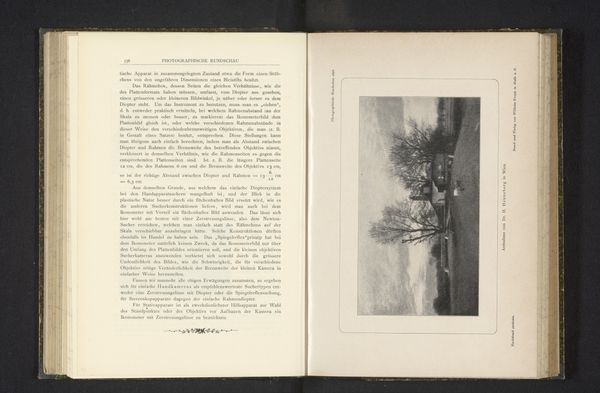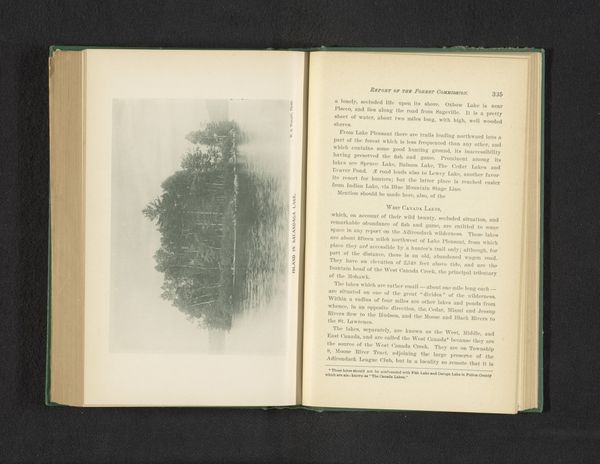
print, photography
# print
#
landscape
#
photography
#
realism
Dimensions: height 170 mm, width 120 mm
Copyright: Rijks Museum: Open Domain
Editor: Here we have "Landschap met rotsen," a landscape photograph, taken before 1888 by Jacques Ducom. The subdued tones and dense arrangement of the rocks and trees create this contemplative atmosphere. I'm curious, what historical influences shaped Ducom's vision for this landscape? Curator: Well, this piece enters into a crucial period for photography as it entered into artistic legitimacy. There's a prevailing question: could photography, a mechanical reproduction, become fine art? In that respect, its adoption of realism seems deliberate; it documented social realities and mimicked academic painting. Landscape paintings enjoyed institutional acceptance through salons, journals, and private collections, and thus played a vital role in conferring photography legitimacy as a high art form. Editor: That's really interesting. The "realism" feels connected to a larger cultural desire for documentation and authenticity. It’s interesting to view realism not merely as a style, but as a claim within the institutional contexts of art. Was photography also influenced by evolving notions of property or even of the picturesque? Curator: Absolutely, it intersects with those aspects too! The late 19th century saw rapid industrialization and urbanization. Thinkers idealized the countryside, imbuing landscapes with values of purity and authenticity. Further, notions such as land ownership played into what landscapes artists focused on – documenting, yes, but also possessing the vista. Does understanding photography's relationship to power structures change how you see it? Editor: Yes, totally. It contextualizes this calm image as not just an artistic expression, but a kind of document reflecting societal values and hierarchies, and photography’s own aspiration within those systems. Curator: Precisely. And consider how different art forms have this continuous dialogue, referencing and reacting to one another within particular institutions and social settings. Editor: I’ll definitely think about art's relationship with its institutions, and photography's journey toward artistic legitimacy.
Comments
No comments
Be the first to comment and join the conversation on the ultimate creative platform.
